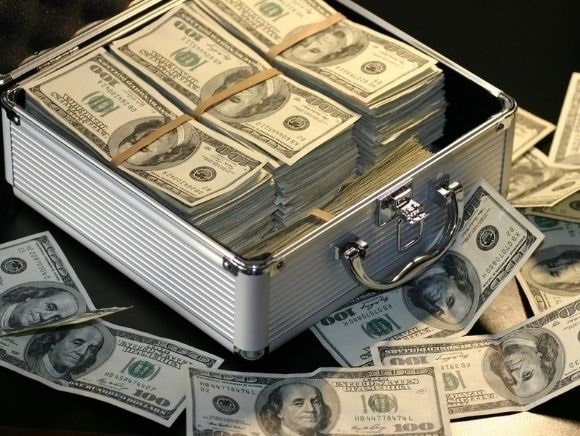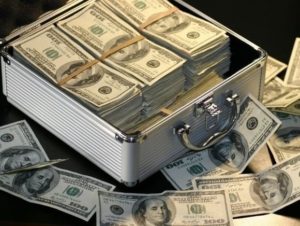
How much wealth did the American people accumulate during the coronavirus pandemic? If they held out their bowler derby hats, they might have been part of the public that accrued a cumulative $38.5 trillion. But now that the emergency economy is claiming victims in every corner of the marketplace, from gasoline prices to baby formula shortages, the United States is slowly circling back to square one, proving that the unprecedented fiscal and monetary expansion of the last two years was nothing more than buying time and providing a mirage of affluence and sound fundamentals. Perhaps Washington needs to inject 300 million Americans with another dose of soma to resuscitate the euphoria.
‘A Wealth Shock’
JPMorgan Chase stated in a recent research note that US households had lost at least $5 trillion since the beginning of 2022, and this figure could surge to $9 trillion by the end of the year. The bear market in two – soon to be three – leading stock benchmark indexes, a dramatic increase in real estate prices, and a spike in pandemic-era cash savings. The Wall Street behemoth has referred to this as “a wealth shock” that is funneling through the system, starting from the billionaire class and eventually hitting the middle class. If households are struggling now, then wait until everyone is hammered equally.
Indeed, billionaires have lost billions this year. Amazon founder Jeff Bezos has lost 39% of his peak wealth, while Elon Musk has seen 41% of his wealth eradicated. However, as the dominos continue to fall, other guests will arrive at the party, too, since many households’ net worth is tied up in the equities arena.
“It’s painful to get back to normal after really being in a fantasy world last year,” John Norris, chief economist at Oakworth Capital Bank, told Bloomberg. “It’s going to feel a lot worse than it actually is.”
Many Americans already see the glass as half empty. The latest Axios poll found that 69% of Americans say the economy is “bad.” Nearly one-third think their household financial situation will be worse off one year from now, according to the Federal Reserve Board of New York’s Survey of Consumer Expectations. A Rasmussen Reports study learned that 69% of Americans think the US is on the “wrong track.” A recent Liberty Nation poll discovered that 61% of respondents anticipate the national average for a gallon of gasoline will top $6 by this summer. There is no escaping the pain in this economy.
Data from the Bureau of Economic Analysis make it clear: Consumers are spending more than they earn, households are dipping into their piggy banks, and borrowers are taking on massive amounts of credit card debt. No wonder people are losing patience with Bidenflation.
Remember, Americans are feeling the rage based on everything that is happening in the backdrop: baby formula shortages, 40-year high inflation, a stock market crash, the US-Mexico border crisis, and so much more from the big book of Bidenomics. They are not doing so to be partisans. When it requires a loan application to fill up a tank of gasoline and walking through back alleys to buy a container of hypoallergenic formula, something is not right in this post-pandemic economy.
Will All Americans Be Better Off?

Now that billionaires have lost at least a third of their fortune, will the rest of the public be better off moving forward? The central tenet of progressivism has been to eradicate the billionaire class to empower everyone else. With Musk and Bezos losing a combined $220 billion in net worth, inflation should be cured, income inequality should be remedied, and the nation should now share the vocal talent of Maria Callas – or Groucho Marx – and sing “We’re in the Money.” This is what President Joe Biden recently insisted when he tweeted that confiscating the wealthy will lower inflation. Now that billions of their money have been erased, will the consumer price index (CPI) start falling?
All for What?
After the US government spent trillions of dollars and the Federal Reserve printed trillions more, what does the country have to show for it? Sure, Americans, especially those who remained employed and dabbled in the stock market, accumulated a tremendous amount of wealth. But these gains have been offset by not only the recent weakness on Wall Street but also the cost-of-living crisis inflicting pain on Main Street. In the end, the United States is pulling a Jen Psaki and circling back to square one. Indeed, 300 million Americans survived the coronavirus pandemic, and all they got for it was a lackluster vaccine, surging inflation, and an incompetent president.
Remember to check out the web’s best conservative news aggregator
Whatfinger.com — the #1 Alternative to the Drudge

